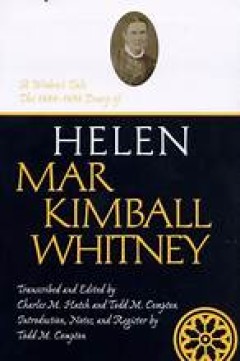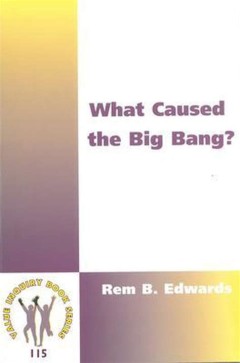Filter by

Abraham in Jewish and Early Christian Literature
The figure of Abraham has been extensively discussed in Jewish and Early Christian Literature. This collection of essays follows the impact of Abraham across biblical texts, including the Pseudigrapha and Apocrypha into early Greek, Latin and Gnostic literature. The essays also turn a spotlight onto those Abrahamic texts that have yet to receive scholarly attention.
- Edition
- -
- ISBN/ISSN
- 9780567675521
- Collation
- oer.unej.ac.id
- Series Title
- -
- Call Number
- Criticism and exegesis of sacred texts

A Wise and Discerning Mind
This is an edited volume of essays dealing with the Hebrew Bible and its cultural environment.
- Edition
- -
- ISBN/ISSN
- 9781951498382
- Collation
- oer.unej.ac.id
- Series Title
- -
- Call Number
- -

100 Years of African Missions: Essays in Honor of Wendell Broom
The wide-ranging essay collection is organized into four main sections. Section I introduces Wendell Broom. Secton II is "God's Call to a Continent: People and Places." Section III is "Mission Strategies and Issues." Section IV, is entitled "Concluding Thoughts" and shares some concluding thoughts on the future of African missions and the African church. The final chapter offers a speech by Wen…
- Edition
- -
- ISBN/ISSN
- 9780891128519, 9780915547685
- Collation
- -
- Series Title
- -
- Call Number
- -

(Re)Making a Difference: Journal for Religion, Film and Media
This article presents and discusses how mediatisation as a theory can be used to analyse two commercial videos, one promoting the organisation Catholics Come Home and the other Coca Cola. A core question in the current debate on mediatisation and religion concerns if and how mediatisation changes not only the social forms of communication about religion but also the meaning of religion in socie…
- Edition
- -
- ISBN/ISSN
- -
- Collation
- -
- Series Title
- -
- Call Number
- -

“What God has joined...” Editorial: Journal for Religion, Film and Media
What is marriage all about? How is it nowadays connected to religious traditions? This issue will search for answers.
- Edition
- -
- ISBN/ISSN
- -
- Collation
- -
- Series Title
- -
- Call Number
- -

„Individual Pieties“ und „Non-Pieties“: Dynamiken des religiösen Wan…
-
- Edition
- -
- ISBN/ISSN
- 978-3-86395-557-1
- Collation
- -
- Series Title
- -
- Call Number
- -

"I Sing the body electric". Body, Voice, Technology and Religion: Journal for…
In his controversial poem “I Sing the Body Electric”, Walt Whitman glorified the human body in all its forms. The world according to Whitman is physical and sensual. Bodies are our fundamental way of being – being in the here and now, being in time and space. Bodies we have and bodies we are are as much sensed, felt, experienced, seen, or heard as they are material objects.2 As bodies, we…
- Edition
- -
- ISBN/ISSN
- 9783741000461
- Collation
- -
- Series Title
- -
- Call Number
- -

The Non-radicalisation of Muslims in Southern Europe = Migration and Integrat…
This open access book explains why southern European countries with significant Muslim communities have experienced few religiously inspired violent attacks – or have avoided the kind of securitised response to such attacks seen in many other Western states. The authors provide a unique contribution to the literature on violent extremism – which has traditionally focused on countries such a…
- Edition
- -
- ISBN/ISSN
- 9783031719967
- Collation
- XV, 124 hlm; ill., lamp.,
- Series Title
- -
- Call Number
- -

The Halal Industry in Asia = Perspectives from Brunei Darussalam, Malaysia, J…
- Edition
- -
- ISBN/ISSN
- 9789819603923
- Collation
- XXII, 420 hlm; ill., lamp.,
- Series Title
- -
- Call Number
- -
- Edition
- -
- ISBN/ISSN
- 9789819603923
- Collation
- XXII, 420 hlm; ill., lamp.,
- Series Title
- -
- Call Number
- -

What Caused the Big Bang?
This book critically explores answers to the big question, What produced our universe around fifteen billion years ago in a Big Bang? It critiques contemporary atheistic cosmologies, including Steady State, Oscillationism, Big Fizz, Big Divide, and Big Accident, that affirm the eternity and self-sufficiency of the universe without God. This study defends and revises Process Theology and argumen…
- Edition
- -
- ISBN/ISSN
- 9789004496033
- Collation
- 444 hlm; ill., lamp.,
- Series Title
- Value Inquiry Book Series, Volume: 115 Philosophy and Religion, Volume: 115
- Call Number
- -
 Computer Science, Information & General Works
Computer Science, Information & General Works  Philosophy & Psychology
Philosophy & Psychology  Religion
Religion  Social Sciences
Social Sciences  Language
Language  Pure Science
Pure Science  Applied Sciences
Applied Sciences  Art & Recreation
Art & Recreation  Literature
Literature  History & Geography
History & Geography